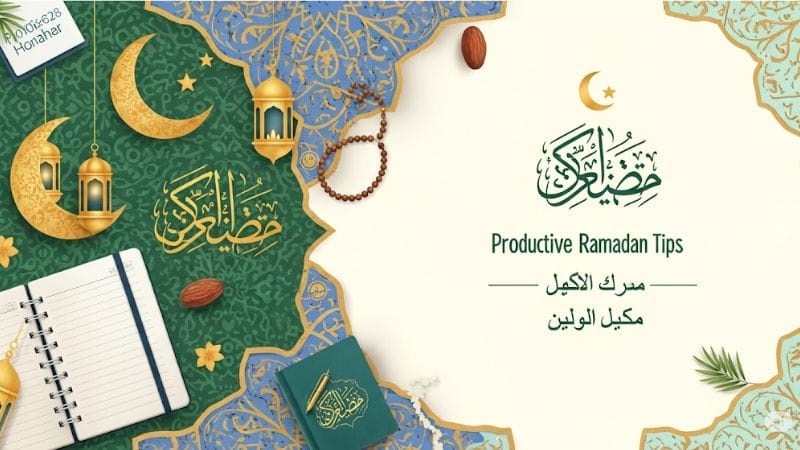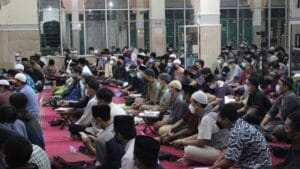Introduction to Ramadan and the Power of Duas
Ramadan, the ninth month of the Islamic lunar calendar, is a sacred time for Muslims worldwide. It’s a month of fasting, reflection, charity, and spiritual growth, where believers seek to deepen their connection with Allah (SWT). Central to this transformative journey are Islamic Duas—supplicatory prayers that serve as a direct line of communication with the Divine. These heartfelt invocations, rooted in the Quran and Sunnah, are powerful tools for seeking guidance, forgiveness, and blessings during Ramadan and beyond.
In this comprehensive guide, we’ll explore the significance of Duas in Ramadan, their role in daily worship, and how they can unlock spiritual blessings. Whether you’re a lifelong Muslim or a new revert seeking to enhance your Ramadan experience, this article offers practical tips, authentic Duas, and insights to enrich your spiritual journey. We’ll also cover resources, apps, and services that support your worship, including reviews, ratings, and fee structures for premium tools, ensuring you have everything you need to make this Ramadan truly transformative.

Why Duas Are the Heart of Ramadan Worship
Duas are more than words; they are expressions of faith, humility, and trust in Allah’s mercy. In Ramadan, the spiritual rewards of every act of worship are multiplied, making Duas especially potent. The Prophet Muhammad (peace be upon him) said, “Dua is the essence of worship” (Tirmidhi), highlighting its centrality in a Muslim’s life.
During Ramadan, specific moments—like breaking the fast, the last third of the night, and Laylatul Qadr (the Night of Power)—are considered ideal for making Duas, as Allah is closest to His servants. By incorporating authentic Duas into your daily routine, you align your heart with divine guidance, fostering spiritual growth and inner peace.
Read more
Key Benefits of Duas in Ramadan
- Spiritual Connection: Duas strengthen your bond with Allah, reminding you of His presence and mercy.
- Forgiveness and Mercy: Sincere supplications during Ramadan can lead to the forgiveness of sins.
- Guidance and Clarity: Duas help you seek Allah’s guidance for personal and worldly challenges.
- Emotional Healing: Reciting Duas brings tranquillity, reducing stress and anxiety.
- Community Bonding: Sharing Duas with family and friends fosters unity and collective worship.
Essential Islamic Duas for Ramadan
To help you unlock the blessings of Ramadan, we’ve compiled a list of essential Duas, categorized by their purpose and timing. Each Dua is presented with its Arabic text, transliteration, translation, and context, ensuring accessibility for all readers. These Duas are sourced from the Quran, Hadith, and authentic Islamic traditions.
1. Dua for Breaking the Fast (Iftar)
One of the most cherished moments in Ramadan is breaking the fast at sunset. This Dua is recited to express gratitude for the sustenance provided by Allah.
Arabic: ذَهَبَ الظَّمَأُ وَابْتَلَّتِ الْعُرُوقُ وَثَبَتَ الأَجْرُ إِنْ شَاءَ اللهُ
Transliteration: Dhahaba al-zama’u wa abtallat al-‘urooqu wa thabata al-ajru in sha’a Allah
Translation: The thirst is gone, the veins are moistened, and the reward is confirmed, if Allah wills.
Source: Sunan Abi Dawud
Context: Recite this Dua before eating or drinking at Iftar. It’s a moment to reflect on the blessings of food, water, and the spiritual rewards of fasting.
2. Dua for Laylatul Qadr
Laylatul Qadr, believed to occur in the last ten nights of Ramadan, is better than a thousand months (Quran 97:3). This Dua, recommended by the Prophet (peace be upon him), is ideal for this blessed night.
Arabic: اللَّهُمَّ إِنَّكَ عَفُوٌّ تُحِبُّ الْعَفْوَ فَاعْفُ عَنِّي
Transliteration: Allahumma innaka ‘afuwwun tuhibbul ‘afwa fa’fu ‘anni
Translation: O Allah, You are Forgiving and love forgiveness, so forgive me.
Source: Sunan Ibn Majah
Context: Recite this Dua repeatedly during the odd nights of the last ten days, especially during Tahajjud prayers, to seek Allah’s forgiveness and mercy.
3. Dua for Forgiveness and Mercy
Ramadan is a time to seek forgiveness for past sins. This comprehensive Dua covers forgiveness, mercy, and protection from trials.
Arabic: رَبَّنَا اغْفِرْ لَنَا ذُنُوبَنَا وَإِسْرَافَنَا فِي أَمْرِنَا وَثَبِّتْ أَقْدَامَنَا وَانْصُرْنَا عَلَى الْقَوْمِ الْكَافِرِينَ
Transliteration: Rabbana ighfir lana dhunubana wa israfana fi amrina wa thabbit aqdama wa ansurna ‘ala al-qawm al-kafireen
Translation: Our Lord, forgive us our sins and our excesses in our affairs, and plant firmly our feet, and give us victory over the disbelieving people.
Source: Quran, Surah Al-Imran (3:147)
Context: Recite this Dua during prayers or personal supplications to seek forgiveness and strength.
4. Dua for Guidance and Protection
This Dua, often recited by the Prophet (peace be upon him), seeks guidance, protection, and provision.
Arabic: اللَّهُمَّ اهْدِنِي وَسَدِّدْنِي
Transliteration: Allahumma ihdini wa saddidni
Translation: O Allah, guide me and set me right.
Source: Sahih Muslim
Context: Ideal for daily recitation, especially during Ramadan, to seek clarity in decisions and protection from misguidance.
5. Dua for Family and Community
Ramadan is a time to pray for loved ones and the global Muslim Ummah. This Dua seeks blessings for family and community.
Arabic: رَبِّ اجْعَلْنِي مُقِيمَ الصَّلَاةِ وَمِنْ ذُرِّيَّتِي ۚ رَبَّنَا وَتَقَبَّلْ دُعَاءِ
Transliteration: Rabbij’alni muqeema as-salati wa min dhurriyyati rabbana wa taqabbal du’a
Translation: My Lord, make me an establisher of prayer, and [many] from my descendants. Our Lord, and accept my supplication.
Source: Quran, Surah Ibrahim (14:40)
Context: Recite this Dua to pray for your family’s steadfastness in faith and the acceptance of your prayers.
Structuring Your Ramadan Day with Duas
To maximize the blessings of Ramadan, integrate Duas into your daily worship routine. Here’s a practical schedule to help you incorporate Duas at key moments:
Morning (Fajr and Suhoor)
- Suhoor Dua: Recite the intention for fasting:
Arabic: وَبِصَوْمِ غَدٍ نَوَيْتُ مِنْ شَهْرِ رَمَضَانَ
Transliteration: Wa bisawmi ghadin nawaytu min shahri Ramadan
Translation: I intend to fast tomorrow in the month of Ramadan. - Post-Fajr Dua: Recite morning Adhkar (














Post Comment